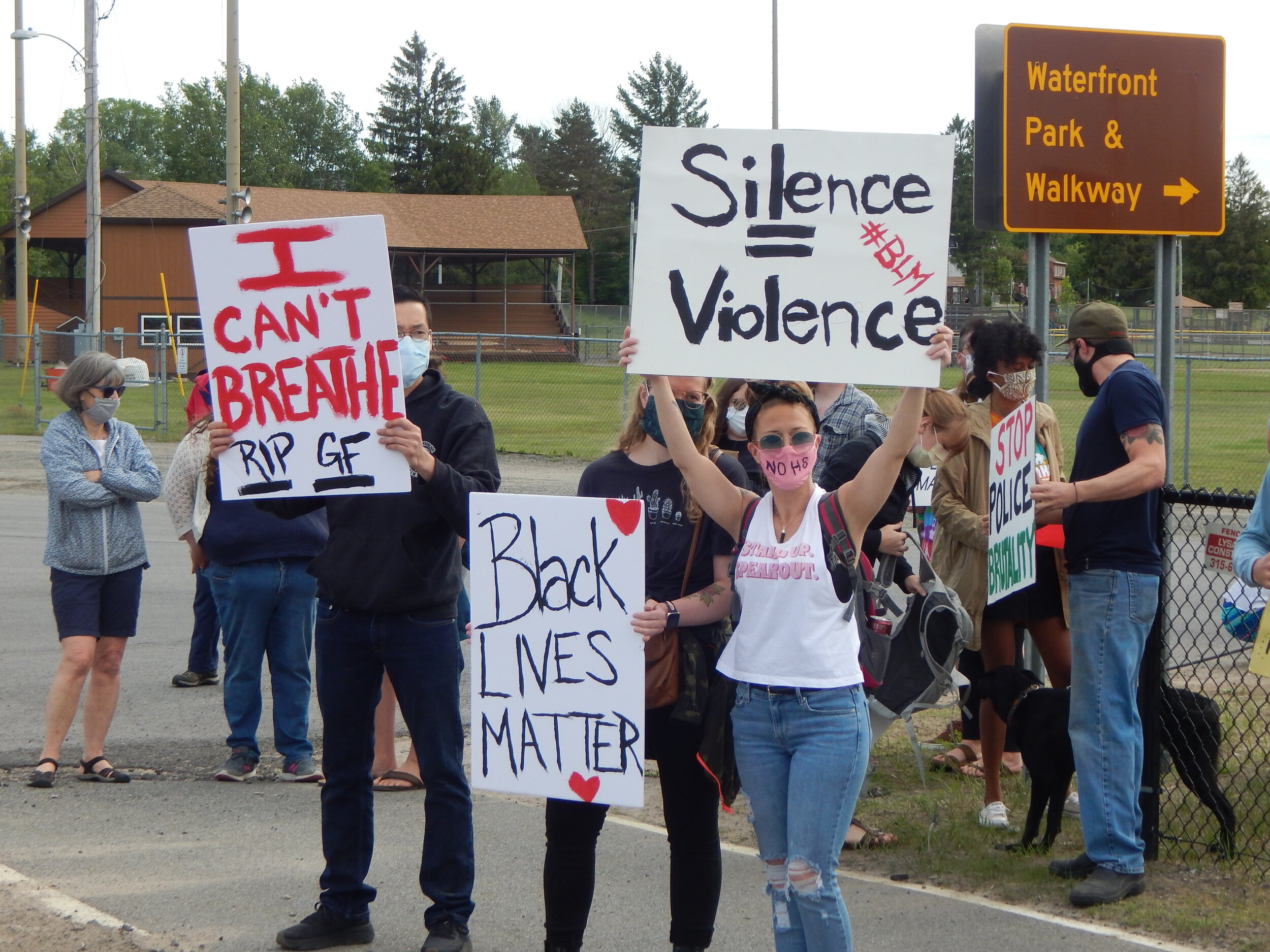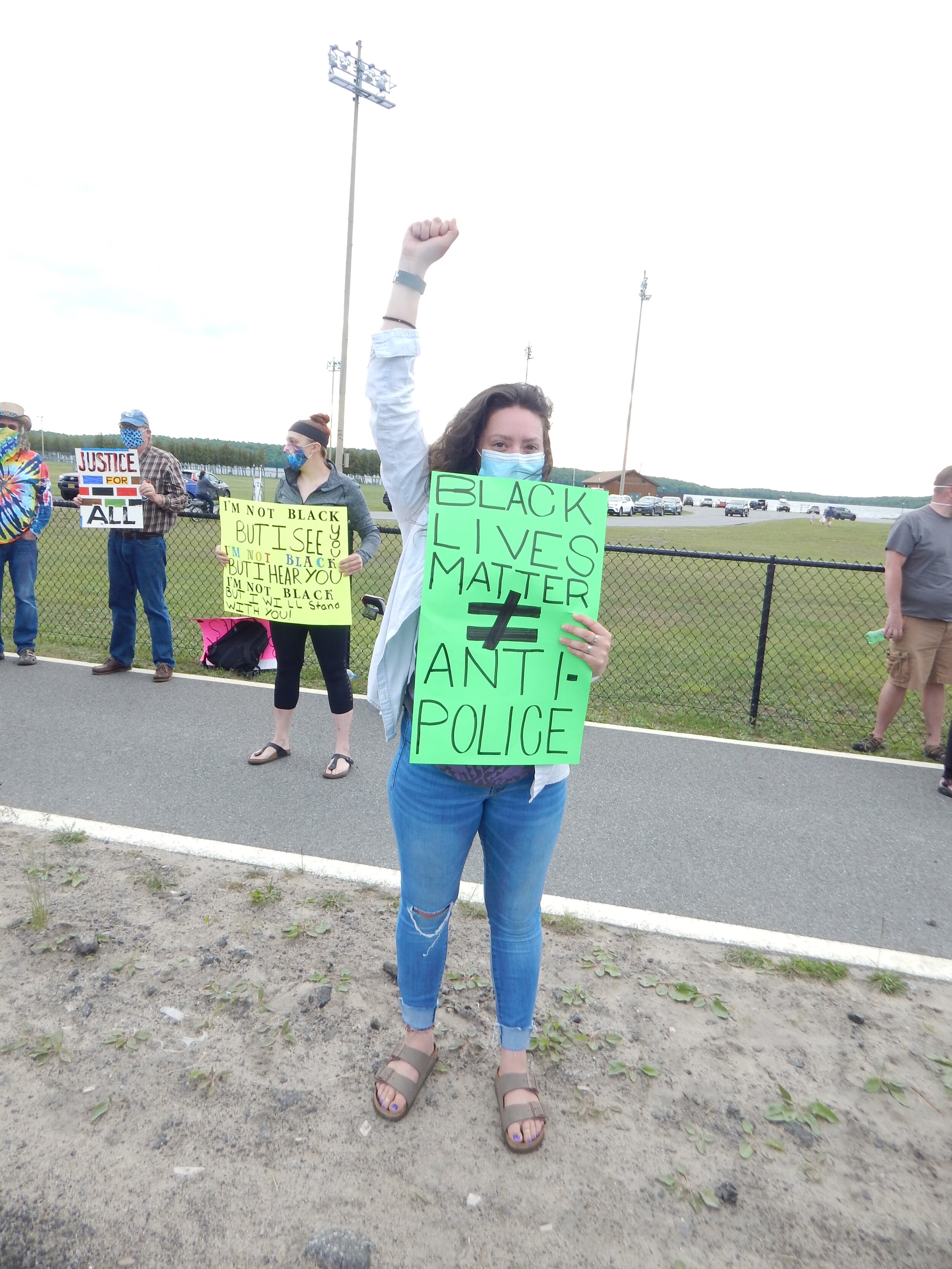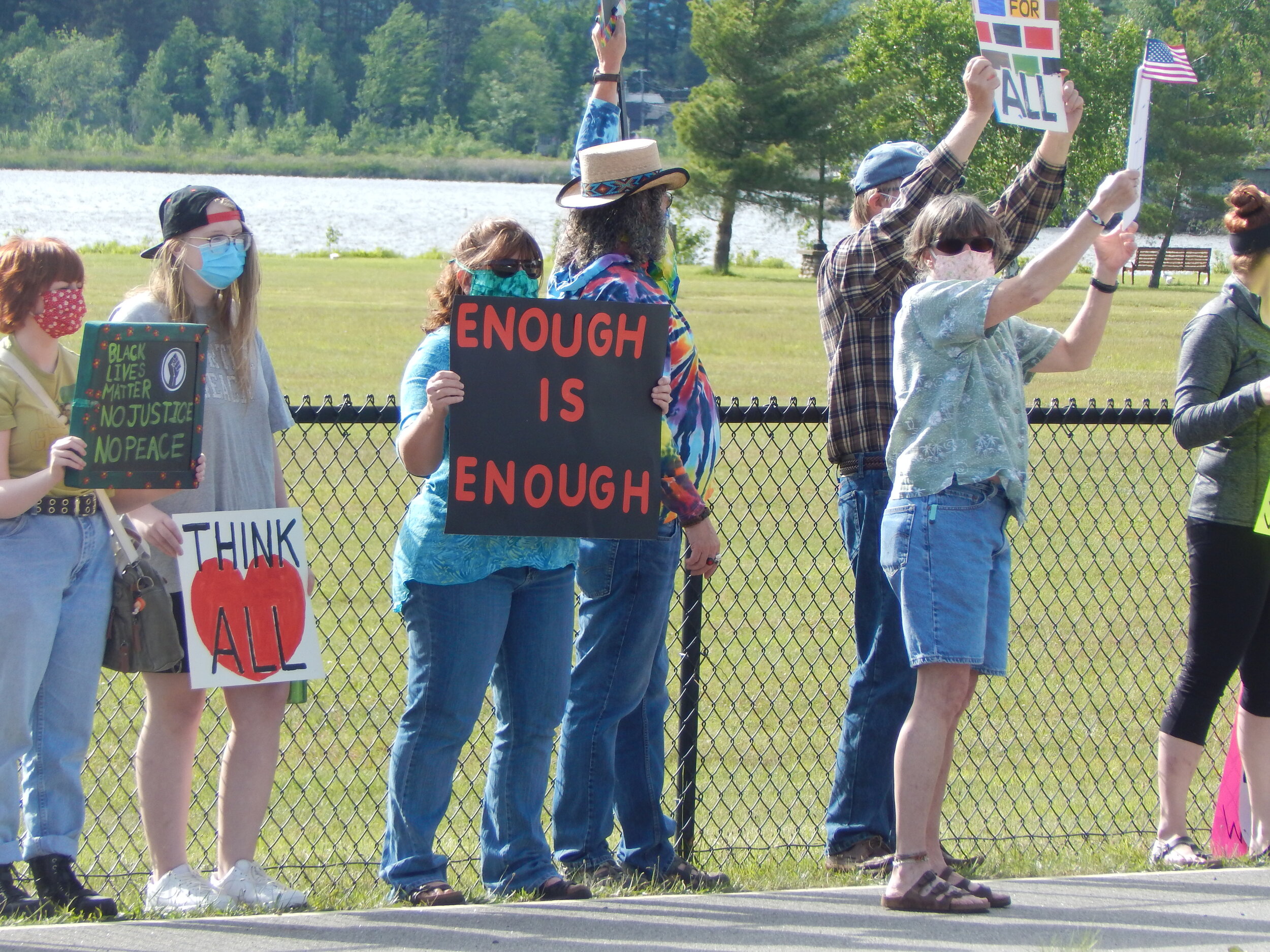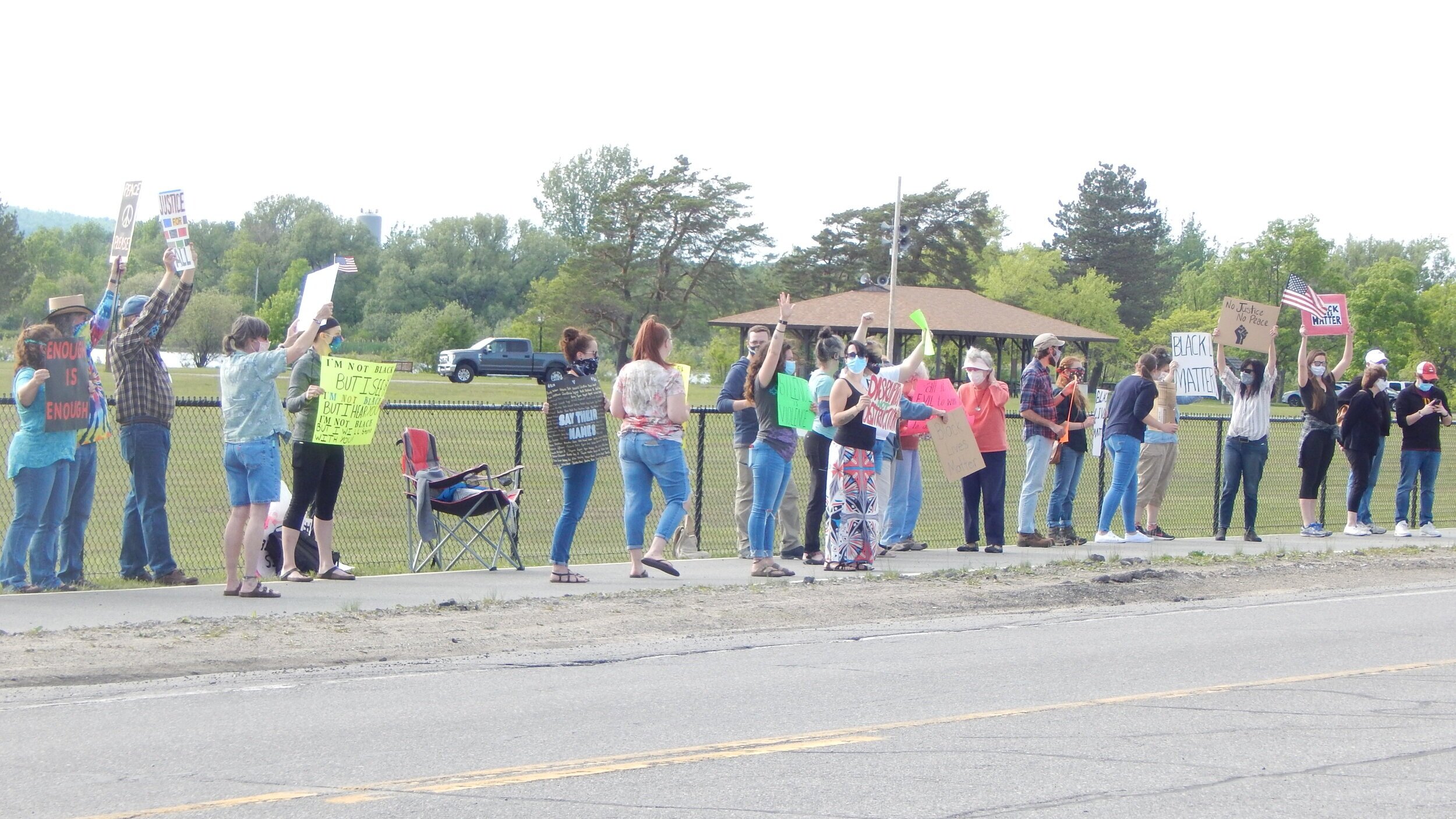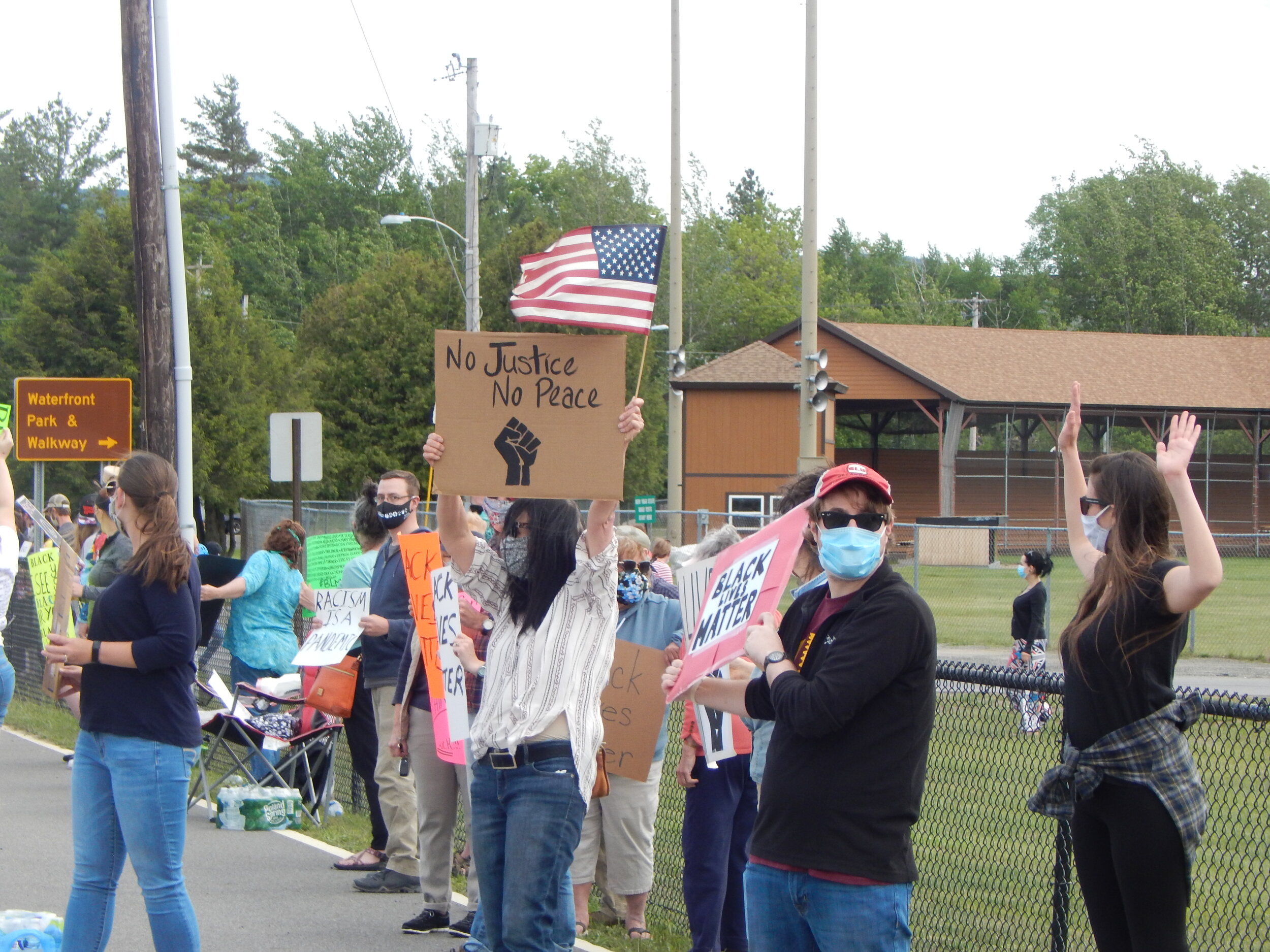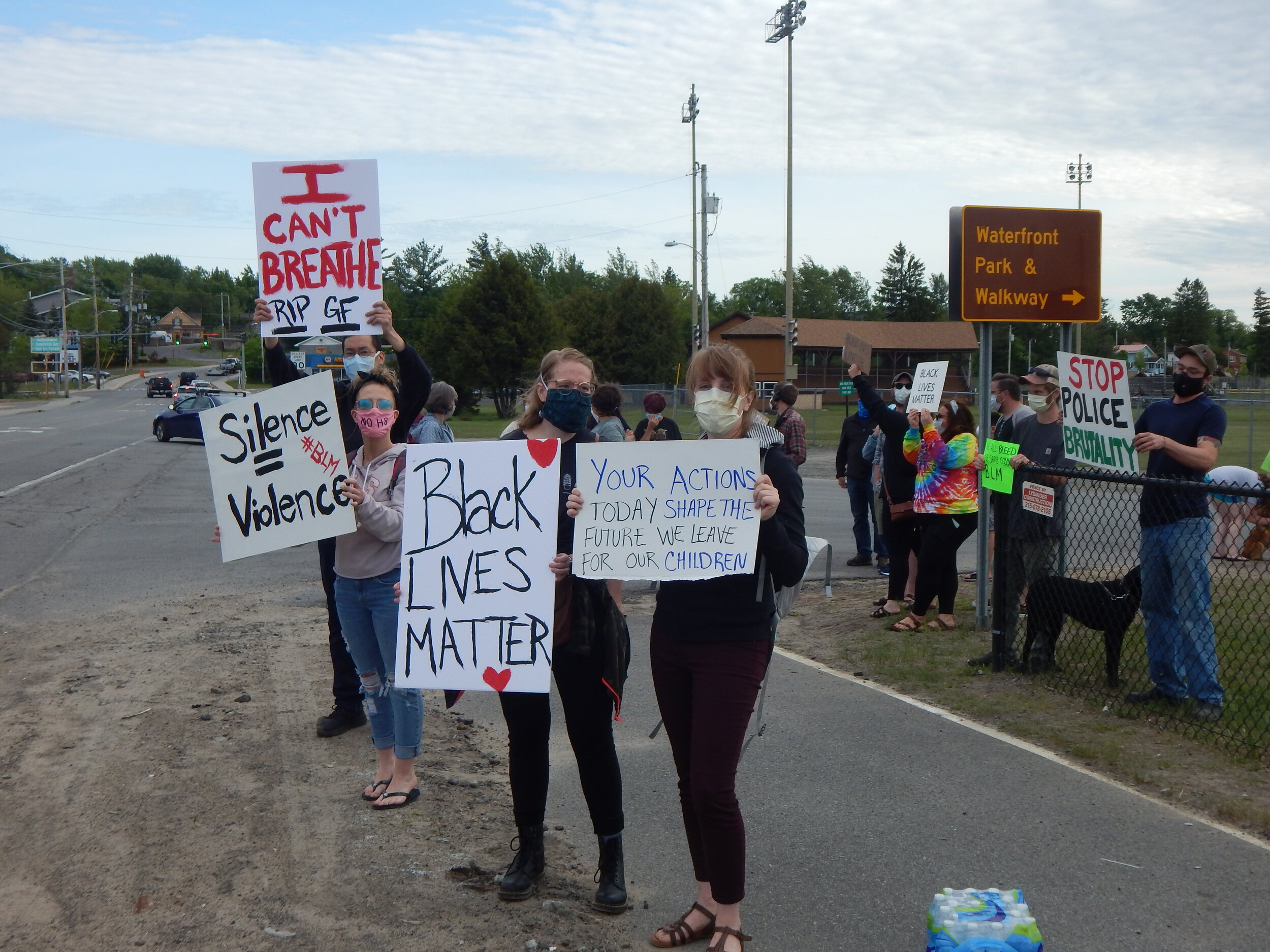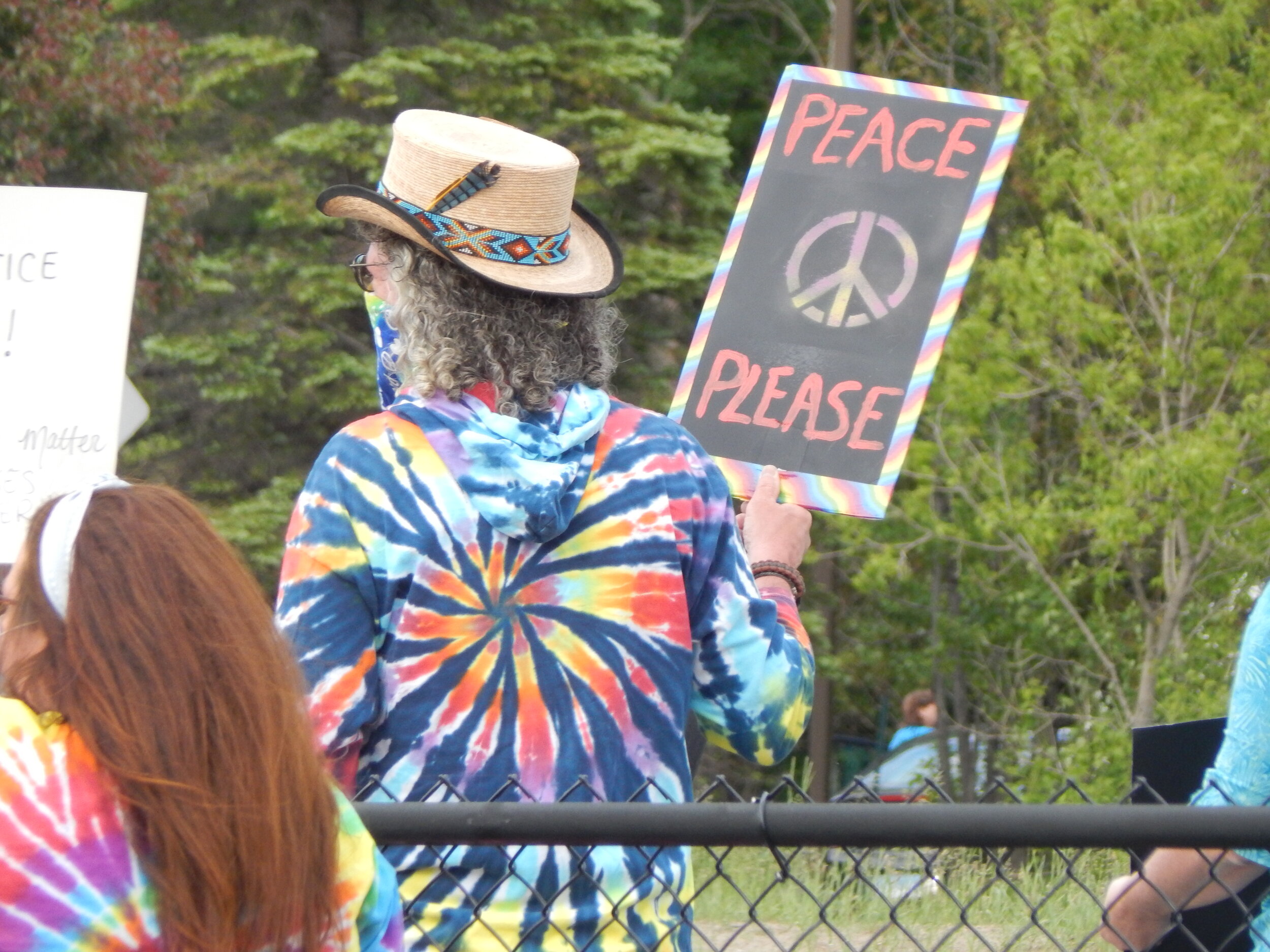Over 75 Tupper Lake protest racism, police brutality Monday at park
by Dan McClelland and Rich Rosentreter
Over 75 Tupper Lake people Monday evening joined in solidarity with thousands of people in communities of all sizes around the country who have been protesting against racism and the racial injustice since the death on Memorial Day of 46 year old George Floyd, a black man, when a white Minneapolis police officer kneeled on his neck for eight minutes while three fellow officers watched.
The video of the incident went viral, angering many in this country and conjuring up memories of many incidents of racial injustice in this country's recent history.
Although some of the protests have turned violent with fires and looting, Tupper Lake's protest was very orderly and very peaceful, as has been the case in most communities across the country.
The protesters here, all wearing face coverings, lined the paved sidewalk near the park entrance, carrying signs with familiar messages from recent protests and cheering chants at times. Many passing cars and trucks beeped their horns in support. The event last nearly an hour and a half.
There were people in a couple of cars, however, who shouted things that clearly showed they objected to the demonstration.
The protest was organized by two local ladies, Kelsey Amell and Liz Boylan, with help from several friends Ashley Lynz and Lexi Hodgson. The announcement of the event was carried on Facebook.
As the protesters gathered, Miss Boylan said they wanted to do something “because black lives do matter,” citing the central theme of the many recent protests. Joining them was their friend, Jade Kenyon of the Frary-Stuart Funeral Home.
Kelsey said “black people in this country have been oppressed long enough and they have every right to be angry. I get angry with them just watching my fellow white people being ignorant about it.”
She said that while she doesn't believe racism is an issue in the North Country, “that's what makes it an issue.”
“People stay blind to it rather than face it and accept it as a reality.”
Miss Amell said many of the black people who years ago were forced to use segregated restrooms and drink from segregated water fountains are still alive today.
“People don't realize these things just happened...it wasn't 300 years ago.”
She said people take for granted that we live in a small area “where bad things don't happen.”
“Many people think these things don't matter, but as a country it does!”
Liz Boylan said she attended the recent protest in Saranac Lake where she didn't see a lot of people from Tupper Lake. “That was my motivation for this one: why don't we bring it here and educate more people and open more eyes and make them realize that even though this is a small town” prejudice and racism exists.
At 5p.m. the two organizers predicted more people would be coming and they did, as cars rolled into the park. A few minutes later the delegation of dozens of people moved to the park's entrance and lined up in front of the fence.
Miss Amell said shortly after their arrival one car pulled up with people inside who told them they don't support the protest. She said she wasn't surprised.
Leah Bedore and her husband Randy Ketcham from Green Pond were among the first to arrive.
Leah said “it's important” to know that black lives do matter. She said it was important to speak out and not stay quiet.
She said she was unable to make the protest in Saranac Lake as she was working so she wanted to be at the Tupper Lake event.
Accompanying Leah and Randy was Connie Rockefeller of the Saranac Inn area said the voices of those in “all little communities” matter.
Ellen Maroun of Tupper Lake said she was there to protest the racism in this nation “because there has been beyond evidence that's it's been too long, too much talk and absolutely no action. It's time for change!”
Mrs. Maroun said she believes “it's individuals who are to blame in a system that has to change.”
Protestors occasionally broke out in chants of “This is what democracy looks like” and “Black lives matter.”
Most of the passing motorists beeped their horns and/or waved salutes in support- and each time this happened the protestors clapped back with a show of appreciation. There were a few, however, who gave derogatory hand gestures and others driving large pick-up trucks revved their engines loudly.
The atmosphere was peaceful and at times the mood was somewhat somber as many of the protestors appeared to recognize the gravity and importance of being along the roadside holding up their signs that evening.

